How I Handle Copycats Without Losing My Mind
We've been copying each other for years. It is perfectly safe.
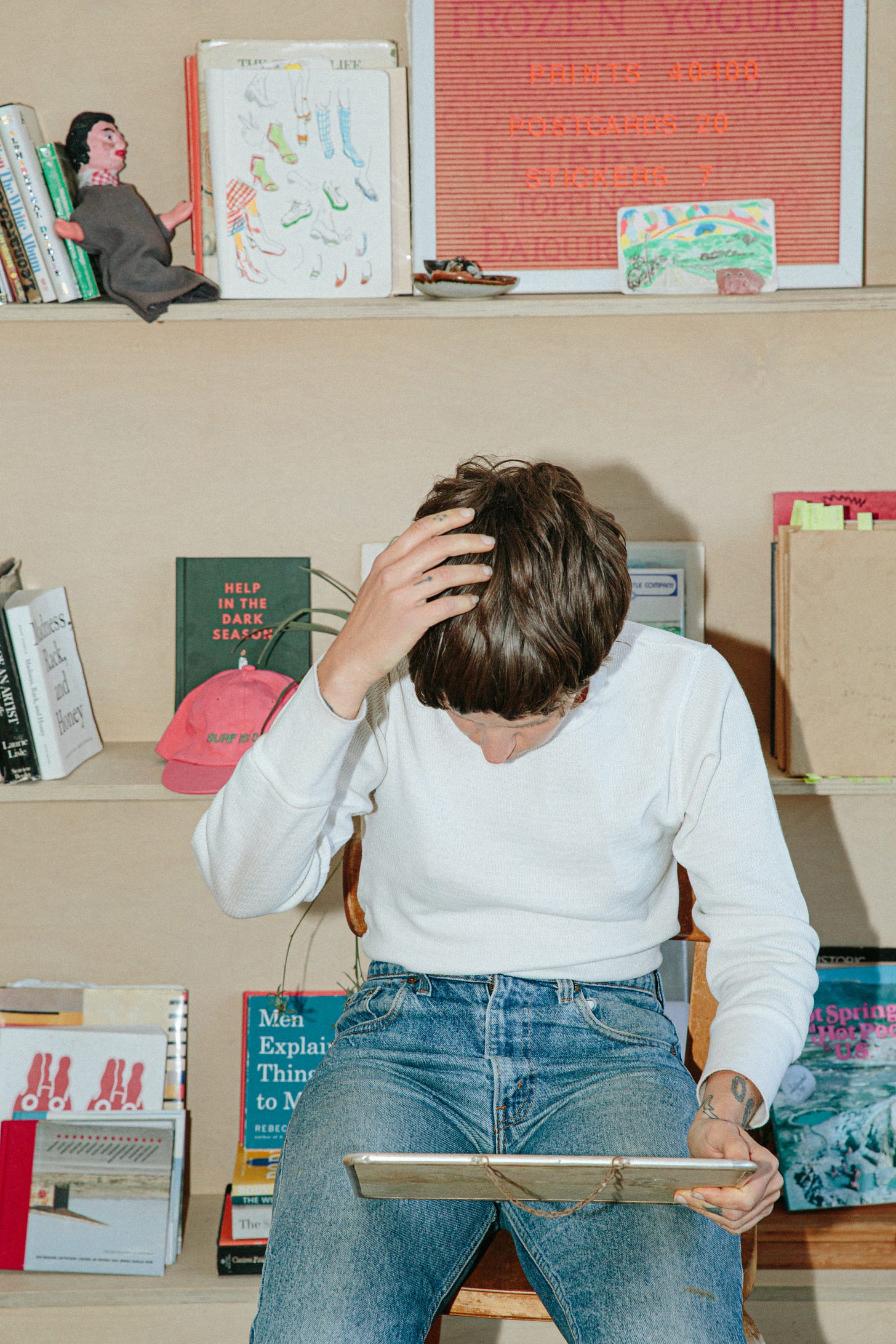
Dear reader,
A few years ago, a writer with a staggeringly massive audience shared a poetic declaration of mine in an Instagram carousel post to promote their new book. The first image was a press release about the upcoming book of essays on living in community. The second image was my manifesto—signature cropped out—with no tag or mention of me.
I was perplexed that an author would use my writing to promote their book. Doesn’t that undermine the whole point of somebody’s press release? I wondered. Yes, unless of course, somebody is trying to pretend that the writing they’ve attached is their own. What infuriated me most about the whole thing was the weaponized incompetence. It was literally unbelievable: A published author, posting text that wasn’t theirs to Instagram and Substack in 2023, without a footnote.
As an artist and a writer, I’ve learned that being copied is inevitable. Making things and sharing them publicly means more eyes on me. And as my audience grows, so do imitators and copycats. Whether I like it or not, my ideas are outside of my control, bound to take on new forms. While I’ve made peace with this reality, not all instances of it affect me equally. The following are the three ways I’ve witnessed my ideas evolve without my control, in order of how seriously I take them—and how disruptive they are to my peace.
Transmission: Sometimes, I sit on an idea for weeks, months, or years, stalling for personal or creative reasons. I can’t seem to release the vision into the wild. And then, one day, when I’m scrolling on my phone, unguarded and relaxed, there it is—the idea! The caveat? It’s coming from someone else's brain.
I’m forced to remember what
speaks to in Big Magic: ideas are conscious, and sometimes impatient. They show little mercy for hesitation, and ruthlessly move on to another host without warning. It’s annoying when this happens, but ultimately I have nobody to blame besides myself. Plus, I’m comforted to know that in this business of ideas, there’s more going on than meets the eye.Direct Imitation: The second instance is when I discover that somebody who admires and engages with my work has created a piece of art using my moxie. It's easy to replicate: find a piece of trashed paper or hotel stationery and, in an interesting typeface, write a paradoxically universal and esoteric musing on it by hand.
This is copying—not inspiration or influence. Regardless, while I might take a screenshot and joke about it with a friend, I don’t lose sleep over these moments. We've been copying each other for years, and it is perfectly safe. In fact, I think copying is important. Art is copying, and there’s no such thing as original art, not anymore at least. And if that’s the case, then is making a piece of art with the formula I mentioned really using my moxie?
The third, and in my opinion, most unsettling instance is the only one that really ruffles my feathers. It’s disheartening when I learn, usually with the help of fans, that someone has directly plagiarized my work. Sometimes it’s a person reusing sentences I've written as their own. Other times, an image of my artwork is shared in a social media post or newsletter, with my signature cropped and no credit given, like in the book release snafu. The audience is left to assume, perhaps lazily, that it was made by the person reposting it.
Being plagiarized is a wretched feeling, especially when it could have been an opportunity for another artist to lift me up alongside her. I usually reach out to more than one friend when I get ripped off, and I often ask for the post to be taken down. But I’ve learned that it doesn’t actually make me feel better to pressure someone into redacting the work. Sniffing out appropriation feels off-track, like I’m a hound whose lost the plot.
Plagiarism is not a sustainable art-making practice, and as someone who doesn’t rely on this method to remain prolific, I return to gratitude. People who take shortcuts and leapfrog between borrowings aren’t nourishing their own creativity. It's no way to feed the muse.
I feed the muse by generating ideas. These ideas are born from the intersection of influence and imitation, from reading others’ words and looking to artists, past and present. But my concern when reading other people’s work is not how to recreate it. Instead, I ask myself: What does this bring up for me, and how do I feel called to express my answer?
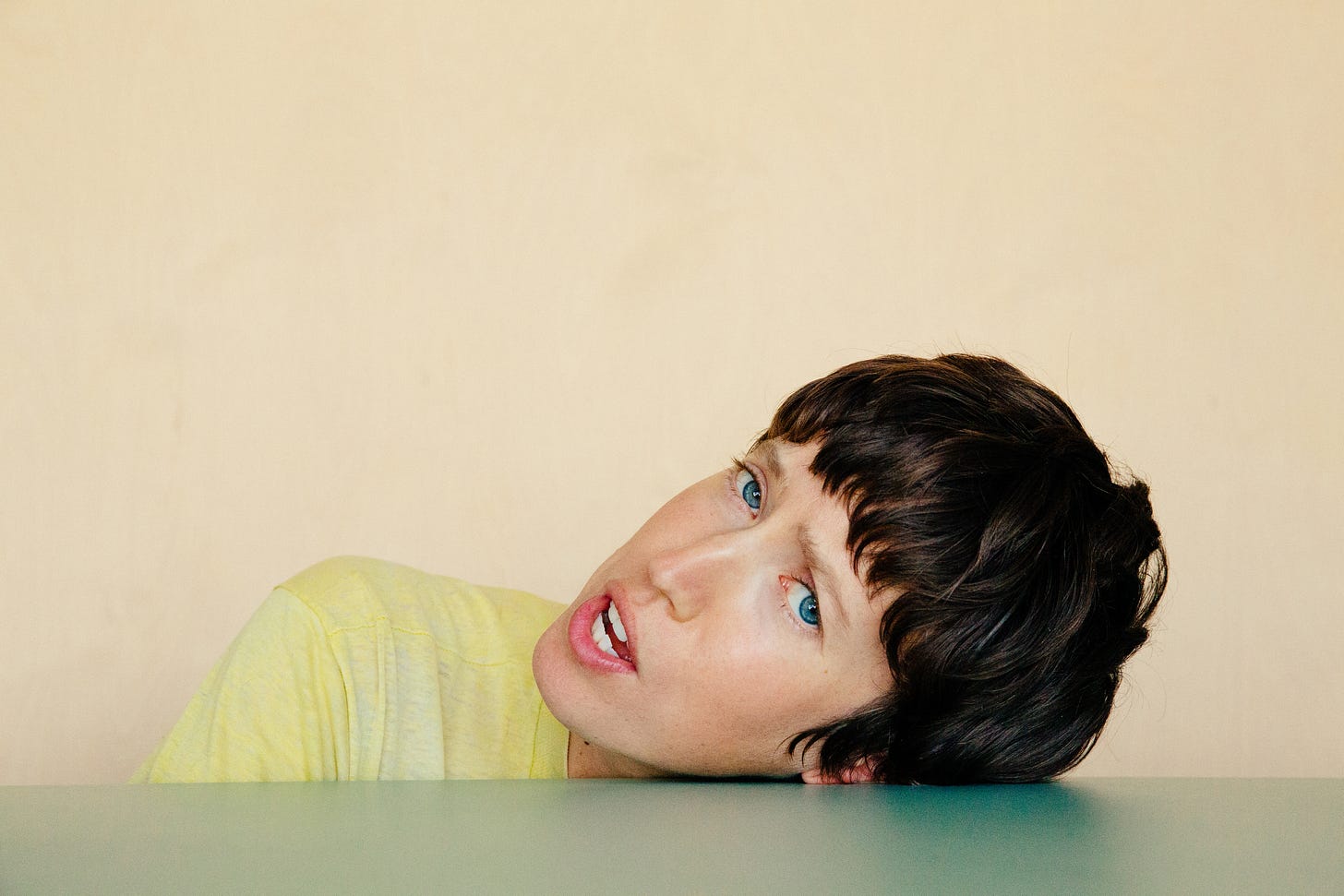
There’s a worry every artist faces: What if someone takes my idea and receives more recognition or reward for it than I did? At the heart of this common nightmare is fear and scarcity—the false logic that if someone else receives more of something than I do, it means I’ll be left behind, with my needs unmet. But is that really true? What if there is enough to go around? And do I really want to be the gatekeeper of someone else’s love and attention? If the worst-case scenario of being copied is someone else getting a boost, whether in money or attention, is it really a worst-case scenario?
I think it’s hypocritical to fight tooth and nail for love and equality, only to become selective about how that love gets spread when someone steps on our toes. It’s like saying, “I want everybody to have love, success, and freedom, but not if it takes anything from me, not if it threatens my chances of having it, not if someone else gets a bigger piece of pie than I do!”
When I’m at risk of getting caught in this web, I get real with myself about why I make art. Chasing fame or recognition is like climbing a ladder against the wrong wall. It might bring some success, but I know it won’t last, and I’m in this for the long haul.
Furthermore, there’s no way to monitor the universe for my copycats. If I focus on hyper-vigilance, it takes away from the energy I need to pour into my work. It steals time, my most valuable resource. Most importantly, it diminishes joy, which is how I actually measure success.
I make art because I am an artist. For better or worse, it’s who I am. I’ve never claimed to be good at it, and whether one person sees it or ten, whether someone copies it or no one does, I will keep making art. And so the job is not to police my art once I’ve released it. The job is to make the work, and to fiercely protect what fuels my desire to keep doing it.
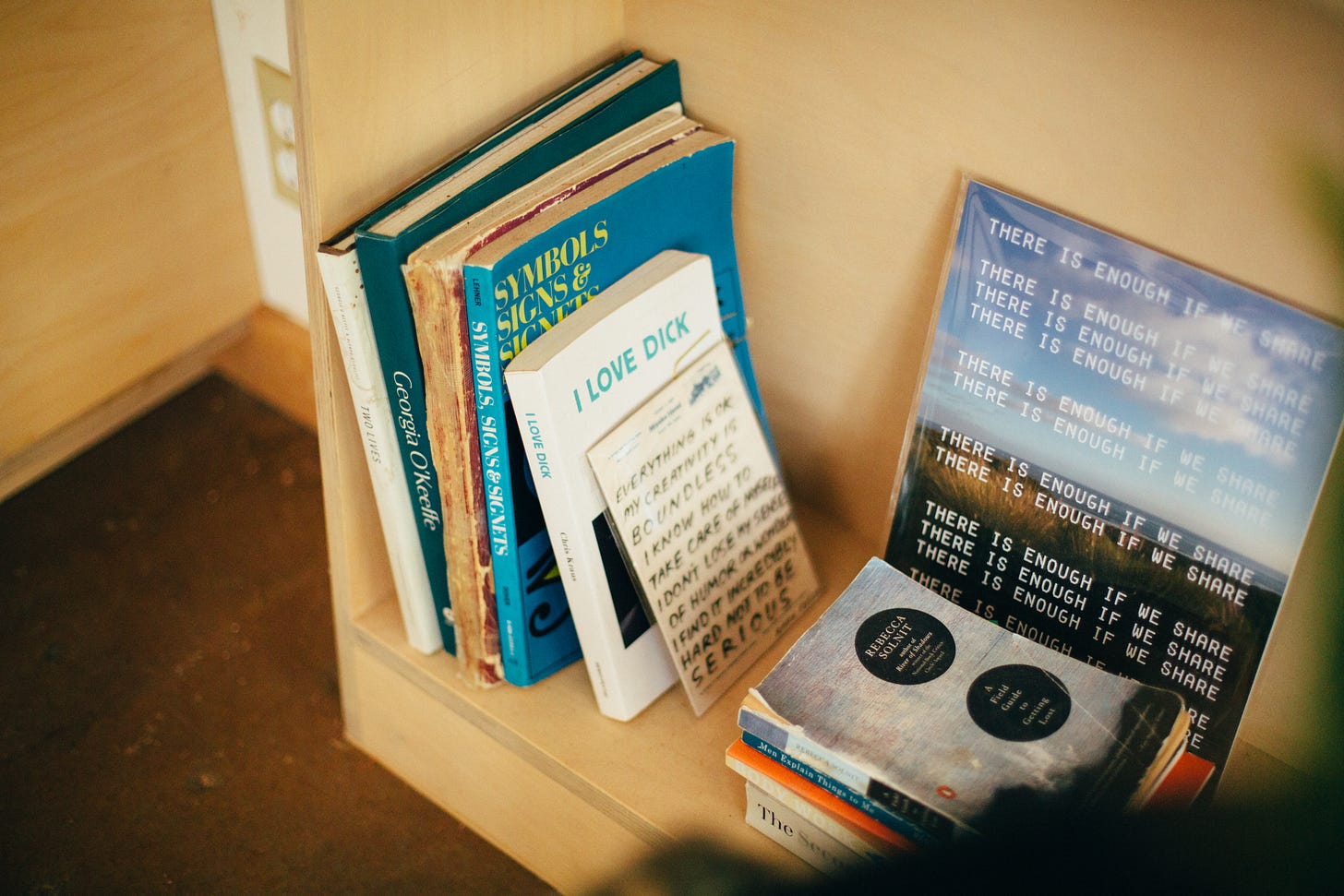
I feel compassion for those who copy or take without consent. I’m fortunate that so far, my tank has never been empty. I’m almost certain that I’ll die before I finish all the projects swirling in my head.
We all have this capacity to create, but for a variety of reasons, most of us are too scared to sit with it, let alone share it with the world. I understand why taking from someone else and hoping no one notices feels like an easy, safe choice for many. It’s hard to pass up the guaranteed recognition and affection from something that has already been made and well-received. I’ve traced a drawing before—it’s fun, but I know deep down it’s not really mine. My hope is that people find a way to befriend and trust their own ideas.
I like to imagine that we’re all flowers, reaching for the same sun. Am I the flower that turns to my neighbor flower and says, “What the fuck are you doing? That’s my sun!” or am I the flower that nods and says, “Feels good, doesn’t it? How can I help you get a better angle on that petal? How can I help you find joy?”
Love,
Sky
PS: I am teaching a two-hour online workshop this Sunday, August 17th from 10 AM-12 PM PST. The class is called ANALOG MARKETING: Make a flyer for your world with Sky Fusco! $55. Spots are limited. JOIN & LEARN MORE HERE.



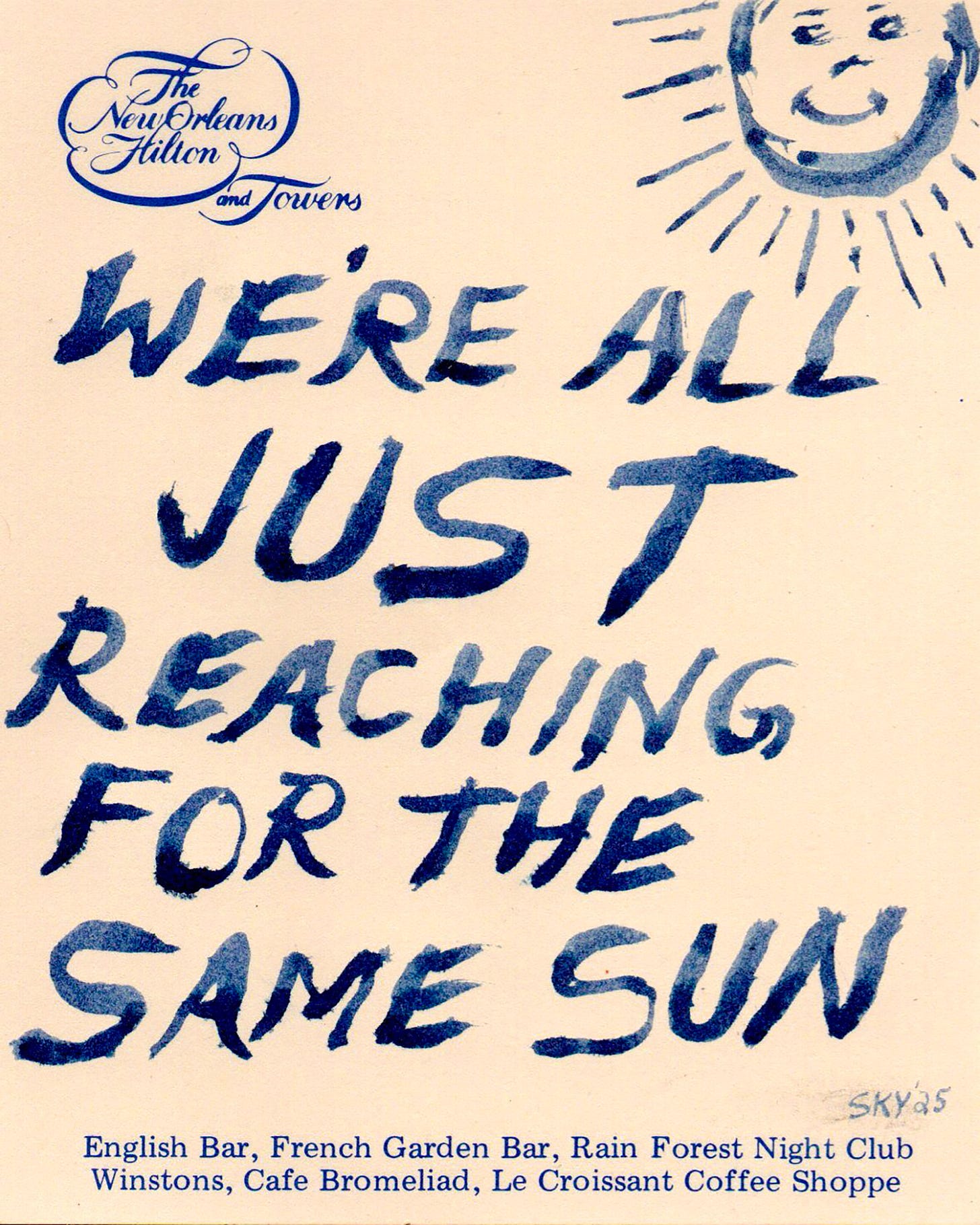
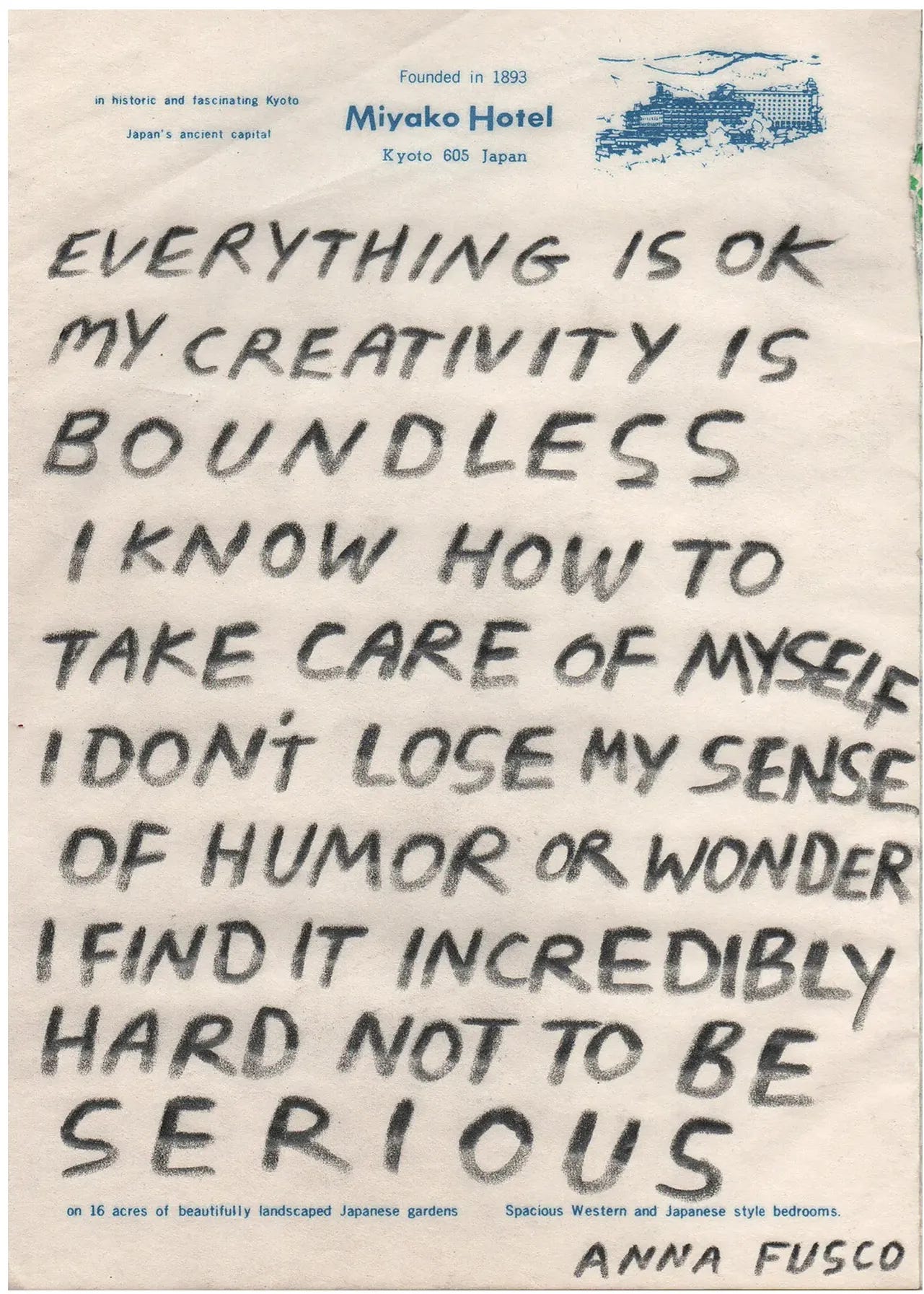
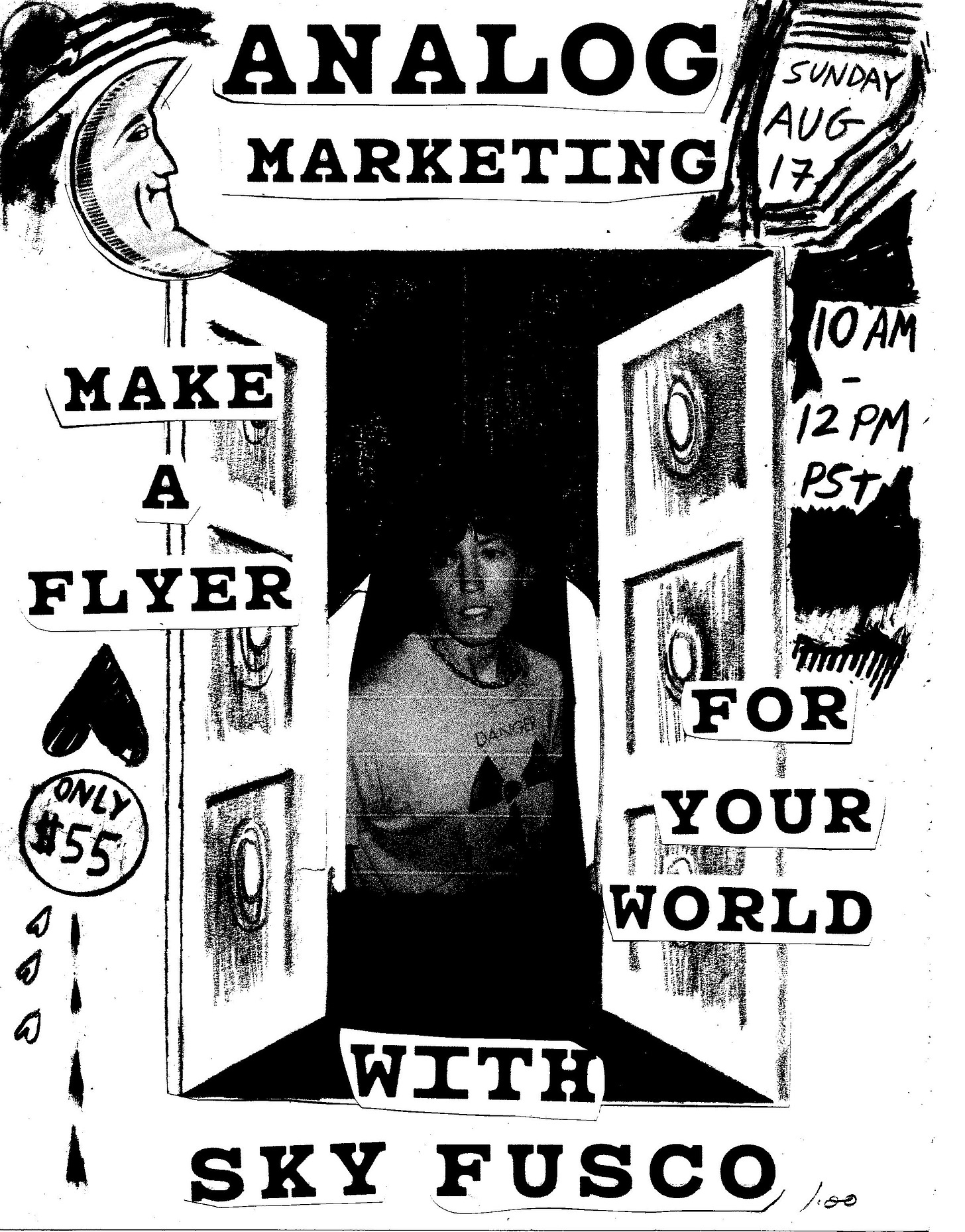
What a generous and wise way to hold this reality. It translates to so many areas of life in which we’re striving for connection and validation. Thank you for this reminder. 💗
I'm an embroidery artist and have had some copycats over the years. I definitely agree that they're not fuelling their own creativity by doing this, and it's telling that I'm still making 6 years into this art form when many of them have let their art fall by the wayside. I'm not saying that to be petty, but I think it's an example of how copying won't nurture your own, innate abilities to create art.